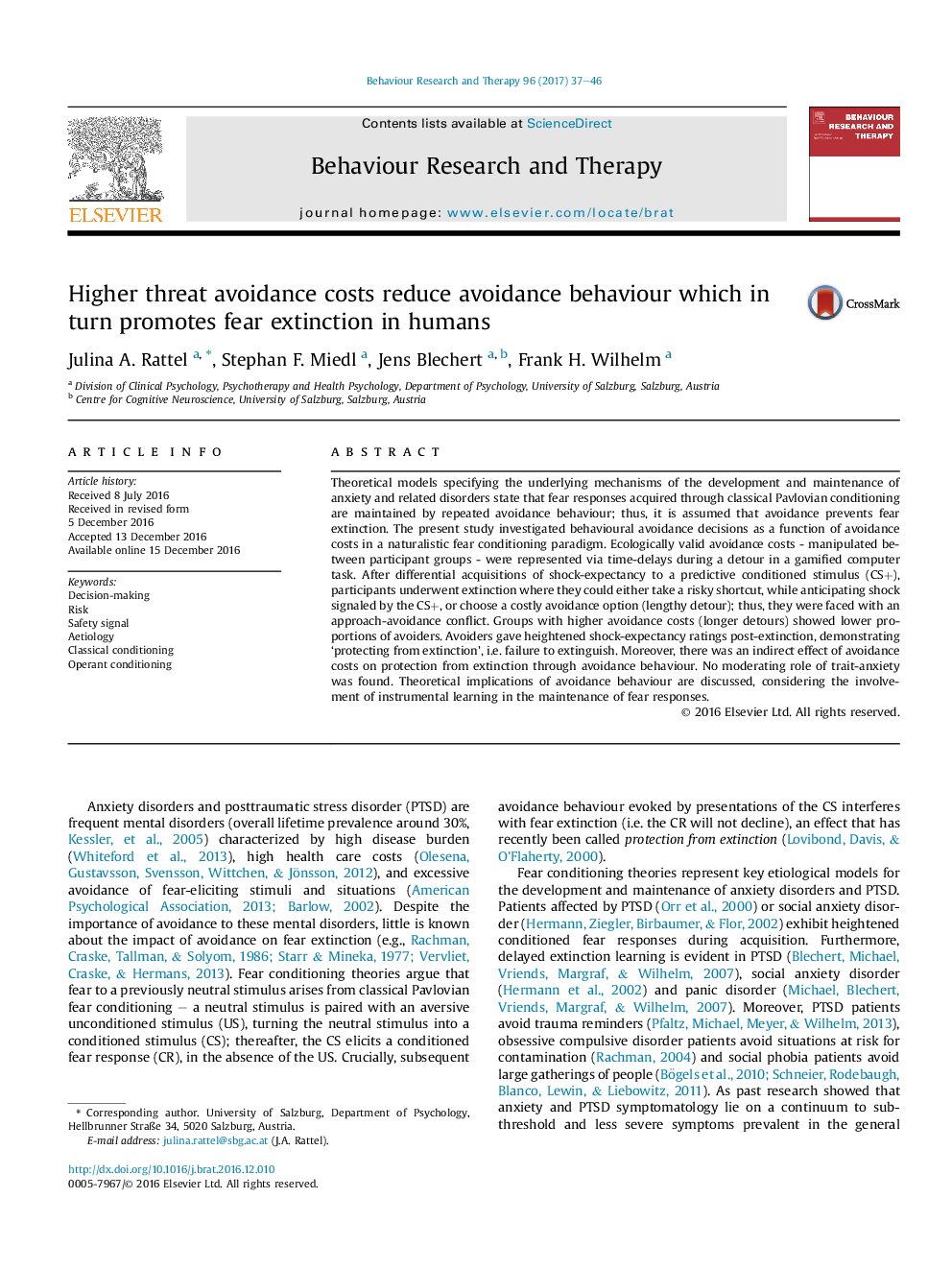| کد مقاله | کد نشریه | سال انتشار | مقاله انگلیسی | نسخه تمام متن |
|---|---|---|---|---|
| 5038127 | 1472753 | 2017 | 10 صفحه PDF | دانلود رایگان |
- Low avoidance costs fostered avoidance behaviour.
- Avoiders were protected from extinction, i.e. they failed to extinguish.
- Thus, avoidance costs indirectly affected protection from extinction.
- Decision-making during extinction is characterized by an approach-avoidance trade-off.
Theoretical models specifying the underlying mechanisms of the development and maintenance of anxiety and related disorders state that fear responses acquired through classical Pavlovian conditioning are maintained by repeated avoidance behaviour; thus, it is assumed that avoidance prevents fear extinction. The present study investigated behavioural avoidance decisions as a function of avoidance costs in a naturalistic fear conditioning paradigm. Ecologically valid avoidance costs - manipulated between participant groups - were represented via time-delays during a detour in a gamified computer task. After differential acquisitions of shock-expectancy to a predictive conditioned stimulus (CS+), participants underwent extinction where they could either take a risky shortcut, while anticipating shock signaled by the CS+, or choose a costly avoidance option (lengthy detour); thus, they were faced with an approach-avoidance conflict. Groups with higher avoidance costs (longer detours) showed lower proportions of avoiders. Avoiders gave heightened shock-expectancy ratings post-extinction, demonstrating 'protecting from extinction', i.e. failure to extinguish. Moreover, there was an indirect effect of avoidance costs on protection from extinction through avoidance behaviour. No moderating role of trait-anxiety was found. Theoretical implications of avoidance behaviour are discussed, considering the involvement of instrumental learning in the maintenance of fear responses.
Journal: Behaviour Research and Therapy - Volume 96, September 2017, Pages 37-46
